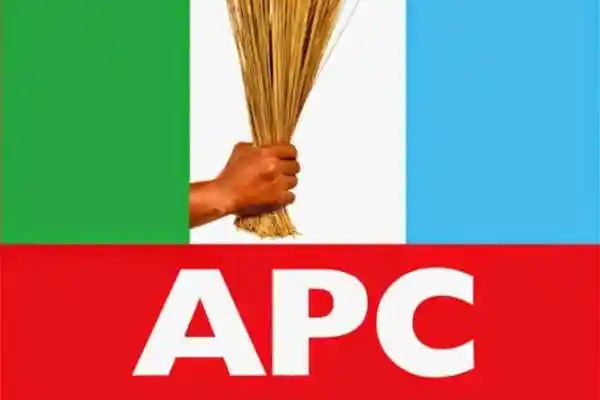REVEALED: The Secret Deals Behind Lawmakers, Governors Dumping Their Parties for APC – Full List
- Advertisement -
Political Survival, Not Ideology
In what analysts describe as a calculated power play, the All Progressives Congress (APC) is expanding its dominance by welcoming a wave of defectors from opposition parties. But behind the public declarations of patriotism lies a darker narrative — one filled with corruption allegations, political cover-ups, and massive financial inducements.
An exclusive investigation by TJ News Nigeria reveals a pattern: embattled politicians facing EFCC probes are defecting to the APC in exchange for political protection, immunity, and promises of electoral privileges. At the center of this storm are Delta State’s current Governor Sheriff Oborevwori and his predecessor Ifeanyi Okowa linked to a ₦100 billion-plus financial scandal.
- Advertisement -
The Delta State Scandal: How Alleged Looters Found Sanctuary in APC
Okowa’s Shocking Fall – ₦1.3 Trillion in Questionable Transactions
- Former Governor Ifeanyi Okowa was arrested by the Economic and Financial Crimes Commission (EFCC) in November 2024.
- He is alleged to have mismanaged ₦1.3 trillion, including ₦40 billion siphoned from a state-backed Liquefied Natural Gas (LNG) project.
- Okowa also reportedly used public funds to acquire luxury properties in Abuja and Asaba.
- Just weeks after his arrest, Okowa defected to the APC — a move critics label a strategic escape from prosecution.
Governor Oborevwori’s Tactical Exit
- Okowa’s political godson, Governor Sheriff Oborevwori, joined the APC in April 2025.
- His defection followed the EFCC’s detention of Delta’s Accountant-General over similar financial discrepancies.
- Shortly after, Oborevwori held a closed-door meeting with President Bola Tinubu, sparking allegations of a “soft landing deal” in return for his loyalty.
APC’s Defection Blueprint: What’s Really on the Table?
Insiders and leaked documents suggest that the APC offers defectors a well-orchestrated package, often including:
- Automatic 2027 election tickets (no primaries required)
- Multi-billion naira “constituency projects” (used as disguised kickbacks)
- Suspension or freezing of EFCC investigations
- Political appointments to boards and federal parastatals
- Upfront financial incentives for personal logistics and campaign structures
These incentives are offered to high-profile members of the PDP, NNPP, Labour Party, and others—particularly those with legal baggage.
Defections by the Numbers: Who Jumped and Why
Delta State
| Name | Former Party | New Party | Allegations | APC Reward |
|---|---|---|---|---|
| Ifeanyi Okowa | PDP | APC | ₦1.3trillion fraud, ₦40bn LNG scam | EFCC freeze, 2027 ticket |
| Sheriff Oborevwori | PDP | APC | ₦100bn state fund mismanagement | Presidential endorsement |
- Advertisement -
Katsina State
- Hon. Salisu Yusuf Majigiri, Hon. Abdullahi Balarabe Dabai, Hon. Aliyu Ilyasu all left the PDP for the APC.
- A PDP ward chairman also joined, citing internal disarray.
Kano State
- Senator Kawu Sumaila (NNPP → APC)Secured ₦90 billion in constituency projects after defection. Denied inducement but admitted benefiting from federal attention.
Kebbi State
- Senator Adamu Aliero, Dr. Yahaya Abdullahi, and Musa Mai Doki defected after early talks with Governor Nasir Idris.
- Alleged offers: federal board appointments and state contracts.
House of Representatives Overview (as of May 2025)
- Over 30 members have switched parties:
- 27 lawmakers defected from PDP, LP, ADC, and NNPP to APC
- 1 lawmaker from LP moved to PDP
- 2 lawmakers from LP defected to APGA
Defectors Deny, But Rewards Tell a Different Story
Several lawmakers have denied receiving inducements:
- Rep. Adamu Tanko (Niger State): “The reports are baseless.”
- Rep. Donatus Matthew (Kaduna): “There were no promises made to me.”
But political analysts and civil society groups remain skeptical, pointing to the immediate project approvals and contract awards that follow these defections.
EFCC’s Deafening Silence
Despite the damning allegations:
- Advertisement -
- The EFCC has not re-opened investigations into Okowa or Oborevwori.
- Observers say this echoes similar trends in past high-profile cases, including that of Yahaya Bello, where prosecution stalls once alignment with APC is secured.
Opposition in Crisis: PDP, NNPP, LP Losing Steam
Atiku’s PDP Coalition Weakens
- Once seen as a strong opposition bloc, the PDP now suffers defections at every level.
- Atiku Abubakar’s attempts to consolidate a “third force” are proving ineffective.
LP & NNPP in Disarray
- Labour Party is experiencing internal leadership crises.
- NNPP faces legal disputes and regional fragmentation.
Exception to the Rule: Senator Ikra Bilbis of Zamfara
- Rumored to be on the defection list, Senator Bilbis denied any such plans:“To be honest, President Tinubu has not even seen me,” he told TJ News Nigeria.
Despite resisting pressure, federal projects reportedly began flowing into his constituency—raising questions about whether loyalty is being rewarded regardless of official defection.
Analysts’ Verdict: A One-Party Future?
With the APC expanding its grip through these political trade-offs:
- Democratic competition is eroding.
- Checks and balances are weakening, with the opposition unable to hold the executive accountable.
- Ideological politics is dying — replaced by transactional politics focused solely on personal gain.
“This is not democracy. This is auctioning power to the highest bidder,” said political analyst Ayo Jegede.
Social Media Reactions: Outrage and Sarcasm
“Okowa called APC corrupt in 2023. Now he’s their new mascot. Shame!”
“EFCC is now a retirement plan. Just join APC and you’re free!”
“They’ve sold Nigeria’s future for a Senate seat and a convoy.”
Online Nigerians are expressing fury, calling the trend “democracy for sale”.
- Advertisement -
Who Holds Power Accountable?
With the APC consolidating power through backdoor deals, Nigerians are left to wonder:
- Where is accountability?
- Who will challenge the ruling party in 2027?
- Can democracy survive a one-party state?
As the 2027 elections approach, the stakes have never been higher — not just for political parties, but for the very future of Nigeria’s democracy.
- Advertisement -


